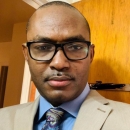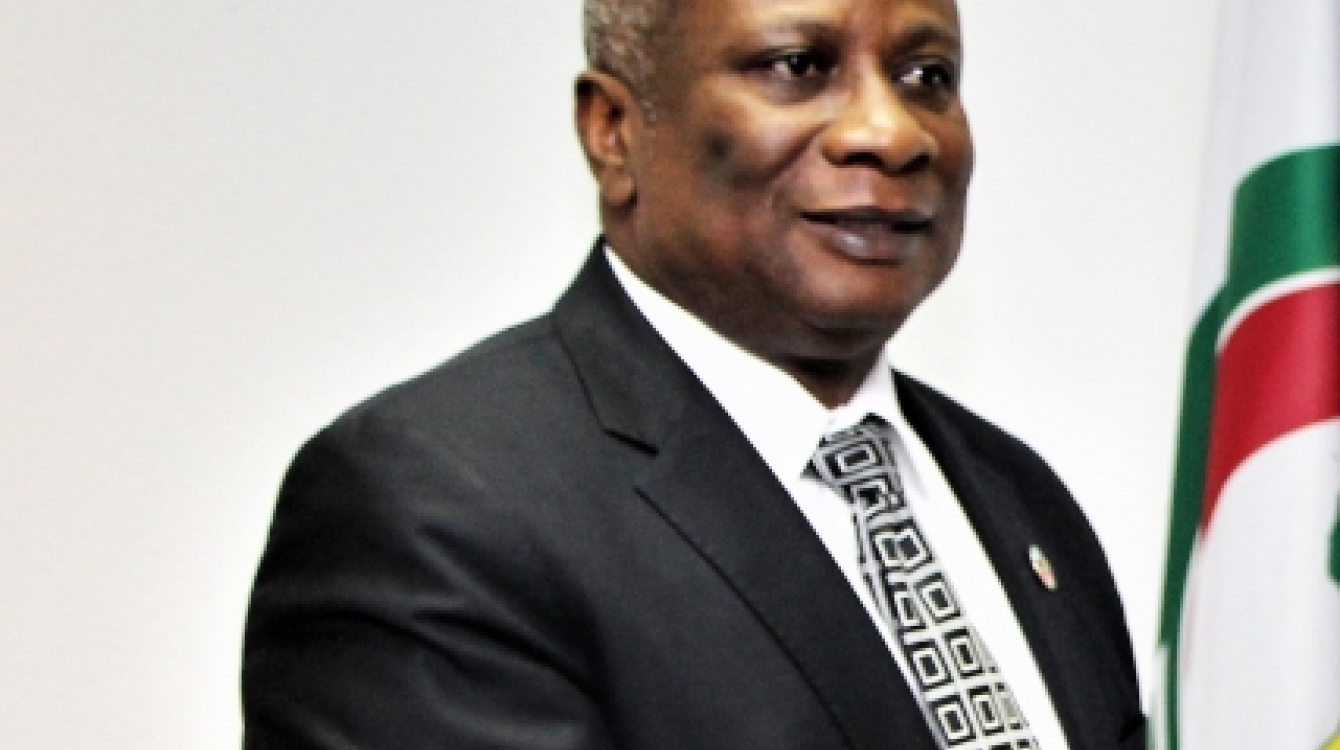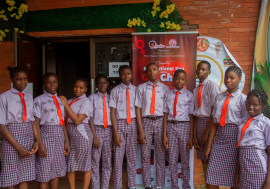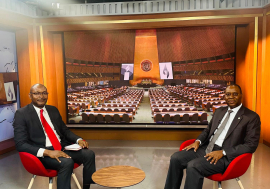Nigeria needs free, fair and credible elections
Nigeria needs free, fair and credible elections
Africa Renewal: What are the main areas the UN is focusing on in its work in Nigeria?
Edward Kallon: Nigeria is Africa’s largest economy, and, with a projected population of around 200 million, it is the most populous country on the continent. Its sheer size and its economy are important for West Africa, Africa and the world at large. That’s why it is critical for the international community to support the political and socioeconomic development in the country. Nigeria is too big to fail; if it fails, the continent will suffer.
Specifically, what is the UN doing in the country?
Nigeria is a lower-middle-income country, meaning that partnerships are very important. In July last year we signed the Partnership Framework for 2018 to 2022. Based on this framework, the UN will support the government in three key areas: the first one is in governance, security and human rights; the second area is assisting the government to provide quality basic services; and the third is supporting inclusive growth and development. With the UN reforms, our focus is to work better together, to foster our synergies. Our key priority is to bring the UN system together to support the government of Nigeria to implement the SDGs [Sustainable Development Goals].
What are Nigeria’s key challenges?
One of the challenges facing Nigeria is weak institutions at the federal, state and local levels. It is critical that institutions are strengthened and the governance architecture put in place. Another critical problem is the unreliable supply of electricity, although of late I am seeing some investments in the power sector to try to address the problem. I’m hoping these investments continue. Nigeria also needs to improve its infrastructure, which is critical.
About 65% of the population is under 24 years. This is a youth bulge that can yield demographic dividends, but it is also a risk if investments are not made to make these
youths productive.
You mentioned support for “inclusive growth.” Do you mean women’s empowerment?
It includes the empowerment of women; it has to do with the implementation of the SDGs, focusing on stimulating the economy and social investment. So our engagement is very catalytic. The UN’s comparative advantage in Nigeria is fourfold: technical assistance; policy advisory services; the UN’s convening power; and strengthening capacity to deliver basic services. However, due to current challenges, including pockets of instability in some places, we are also supporting the government in providing humanitarian services to the affected populations.
How challenging is Nigeria’s security situation?
Let’s put it this way: in general, the country is relatively safe, but we have pockets of instability. For example, we have the Boko Haram insurgency in the Northeast that is now in its ninth year, and which has killed an estimated 27,000 people. There is also an emerging concern about tension between herders and farmers, which is affecting at least 17 of Nigeria’s 36 states. This is quite worrisome because it has to do with issues of access to land and water made worse by the desertification in the North. The herders are forced to move their cattle down south, towards the riverine areas, and this creates tensions and clashes between them and farmers. In some of these areas there is a collapse of traditional conflict-resolution mechanisms.
How are you assisting the country to deal with this?
We are now thinking of supporting the federal states in reactivating the traditional conflict-resolution architecture. And there is also a need to modernize pastoralism, which is critical in the sense that nomadic life cannot be sustained because of demographic changes and pressure on land and water. We also have the old remnants of the Niger Delta Avengers, who are quite destructive, and the remnants of indigenous people of Biafra who are agitating for a separate republic. There is also the critical issue of hate speech, kidnappings, and petty crimes, which can happen in any populous country.
Do these security issues pose an existential threat to Nigeria?
I cannot say that the unity of the country is threatened. Nigeria has a dynamic social structure that one must appreciate. And you can only appreciate it if you understand its dynamics. There is, absolutely, the need to work on inequalities, better management of available resources, and to create opportunities for youths. About 65% of the population is under 24 years. This is a youth bulge that can yield demographic dividends, but it is also a risk if investments are not made to make these youths productive.
27,000
people have been killed by Boko Haram insurgency in nine years
How receptive is the government to your ideas?
The government is very receptive of the UN in general, and that’s the reason why I am here [at the UN General Assembly] with them. There is an acknowledgement of the contributions we are making to their socioeconomic development. But let’s be clear that the UN itself is not going to develop Nigeria for Nigerians. Our role will continue to be catalytic.
Nigeria has a three-tier governance structure (federal, state and local government). How do you interact within this structure?
Well, it has been very clear to me that I need to engage at the federal and state levels. Vertical and horizontal linkages are critical. Most policies are made at the federal level before they are adopted and implemented by the states, which is where we can make a difference in people’s lives. Of course, the political landscape is quite dynamic in Nigeria. For the 2019 elections, for example, we are talking about 91 political parties and over 81 million eligible voters.
Regarding the upcoming presidential and parliamentary elections in February 2019, what’s your assessment of the electoral process so far?
We are advocating for free, fair and credible elections. If we end up with a contested election result, it can destabilize the fragile balance in the country. And I don’t think it is in the interest of Nigerians. The economy is coming out of recession and they have put in place very viable policies that have started to make an impact.
How do you see Nigeria in 5 to 10 years?
If Nigeria is successful, it can take the whole of the subregion or even the continent to prosperity. So it is critical that Nigeria’s policies and practices work, and I am hoping that the current development efforts will continue. They have an economic recovery plan that’s focused on diversification, which is key to reducing the dependency on oil and to making the economy competitive.


























